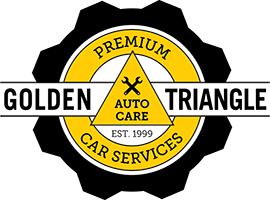
Call Us Now
303-573-1335
 The early automobile was a simple machine.
The early automobile was a simple machine.
Beginning as a wagon with an engine to propel it forward, the mechanics of the time were basic. As technology moved forward, the automobile became more complex.
Much like today’s manual transmission, the early automobile offered a couple of forward gears and one for reverse. Cars of the day were not fast, so two or three forward gears were adequate. At of the turn of the 20th century, the manual transmissions were un-synchronized. The use of pedals allowed the driver to shift to other gears, although gear grinding and difficult shifting was common.
In 1929 a major innovation was developed by Cadillac with their synchronized transmission. The synchronization greatly reduced gear grinding and made shifting smoother and easier. This would become a standard for half of the 20th century.
As cars became larger and ever-increasing traffic in larger cities made for more starting and stopping, the next step in the evolution of the car was an automatic transmission. Alleviating the need for the driver to manually shift gears, the hope was to produce a transmission that would do all of the work.
The development of the automatic transmission started in the early 1900’s. The first working automatic transmission was invented by Alfred Horner Munro, a Canadian engineer. While Munro’s transmission was operational, it used compressed air instead of hydraulic fluid. Because this air-powered version lacked power, it would never become commercially viable.
In 1940 General Motors engineer, Earl Thompson developed and introduced the “Hydra-Matic” automatic transmission. A “clutch-less” transmission, it was the first to use hydraulic fluid and would be the basis of development we see in modern cars. It was in 1948 that the world saw the first true, fully automatic system, the Buick Dynaflow transmission.
From the older automobiles, technological advances have made the automatic transmission faster, smoother and more reliable. Like most aspects of the modern-day automobile, the new technology has also created the need for the servicing industry to keep up with mechanical advancements. Today’s automatic transmissions include computer aided shift management, requiring more than just mechanical knowledge for servicing and repairs.
As you would expect from a top-quality auto repair shop, Golden Triangle Auto Care in downtown Denver, Colorado has kept up with the demands of new car technology. Our lead mechanic is ASE certified and supports training our shop technicians. By maintaining the newest tools and systems needed to work on the latest technology, Golden Triangle Auto Care crew is well equipped to service today’s automatic transmissions that roll through the shop doors. Give us a call today if your vehicle is not performing to your standards: 303-573-1335.

 The early automobile was a simple machine.
The early automobile was a simple machine.